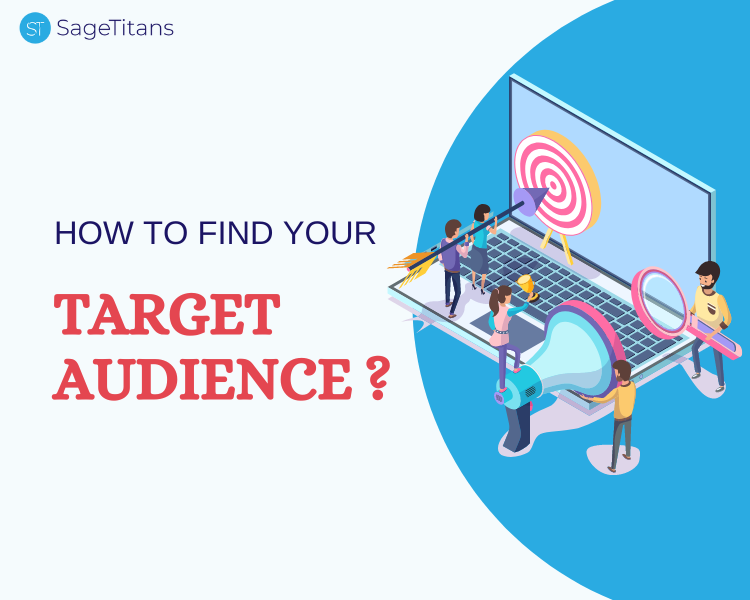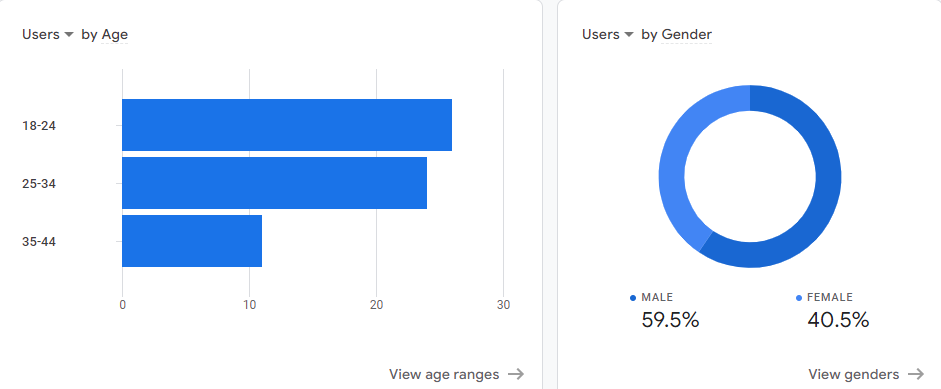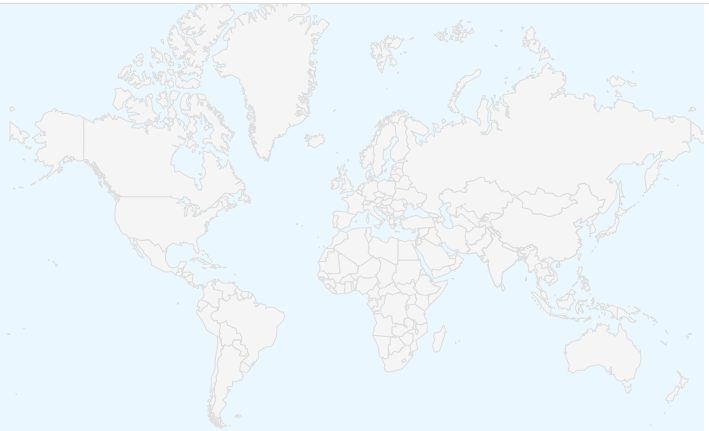
How To Find Your Target Audience To Do Better Marketing
It’s no secret that doing better marketing is essential for any business. But it can be difficult to know where to start. And even if you do have a target audience in mind, it can be difficult to find them. After all, who has time for that? You already have a business to run! So how do you do an effective marketing campaign without spending hours searching for the right target audience? That’s where finding your target audience comes in. In this article, we will discuss target audience, types of target audience and the top 10 ways to find your target audience to do better marketing. Let’s get started!
Who is your target audience?
Your target audience is a group of people that you want to market your products or services to. This means that you’ll only sell your product or service to them or advertise it to them.

For example, let’s say that you are running a coffee shop. In this case, your target audience would be the people in your area who drink coffee or enjoy coffee. They would be people who are likely to buy from you or use your services.
The more specific you can be with your target audience, the better. This helps to ensure that you’re targeting the right people rather than wasting your time and money on people who don’t want or need your product. However, it’s important to be realistic as well. You can’t expect to sell your product or service to everyone in the world so you can’t just pick whoever you think will buy it.
Target audience vs target market
It’s important to understand the difference between your target audience and your market in order to do your market research effectively. Your market is a much larger group of people than your target audience. This means that it is a collection of people that you can potentially market your product or service to.
For example, if you owned a carpet cleaning business, your target market would include everyone within a certain radius around your restaurant. This would include things like residential or commercial, families, couples, groups of friends and so on.
In addition to all of this, your market would also have certain characteristics such as their age, gender, income level and more. Once you have an understanding of your target market, you can use this information to identify your target audience within that market.
This means that you would have to choose a specific group of people to promote your carpet cleaning business within your target market rather than just anyone and everyone within that market.
Once you’ve identified your target audience within your market, you can then go ahead and conduct your market research in order to identify the most effective way to reach them with your marketing campaigns.
Types of target audience
There are numerous types of target audience that you can use when conducting your market research. Each one has its own unique advantages that you should take into account before deciding which one you want to use. So let’s take a look at some of the most common ones.
-
Demographic Audience:
This is the type of target audience that you would normally choose if you wanted to gather information about the people who live in a particular region. This type of target would include information such as their gender, age, marital status, employment status and more.

This information is usually obtained through surveys or questionnaires and can help you identify ways in which you can tailor your marketing campaigns in order to reach this group of people more effectively.
-
Psychographic Audience:
This is the audience that you choose when you want to learn about your customers’ personality characteristics and attitudes so that you can better understand their needs and preferences.
This type of target includes information about your consumers’ hobbies and interests as well as their values and beliefs. It can also help you identify ways that you can better meet their needs and expectations in order to maximize your sales.

Source: cbinsights
-
Geographic Audience:

This type of audience is usually chosen when you want to gather information about people who are in a particular region of the country, state or even city. It includes information such as where they are located and whether they are also a part of any specific group or organization.
-
Behavioral Audience:
This type of audience is useful for gathering information about the behavior of your prospects so you can determine how likely they are to actually purchase your products or services.
The information gathered from this type of target can include things like how long the prospect has been in the market for your product or service as well as how many times they have visited your website in the past.
-
Situational Audience:
This audience analysis includes factors like the size of the audience (how many people you are targeting), the occasion (temporal or seasonal), and the level of interest (strong or low).
-
Multicultural Audience:
To identify this audience, your analysis focuses on defining your consumers’ differences in addition to what they have in common.
A great way to gather this kind of information is to conduct online research by setting up a poll on your website, questionnaire or by conducting an online survey among your existing customer base.
One of the most important aspects of successful marketing is knowing exactly who your audience is. Having this information will help you identify the products and services that they are likely to be interested in so that they can make a more informed buying decision. Let’s go over how to identify your target audience.
Here are top 10 ways to find your target audience:
-
Use Analytical Data:
Through web analytics tools such as ahref, semrush, similarweb etc for your business or major players of your industry, you can get details about your audience such as their age, gender, location, searched keywords, paid keywords, top pages, social media hashtags etc. You can use this data to target different demographics groups according to their interests and preferences.
-
Social Media Analytics:
Social media platforms such as FB, Instagram, LinkedIN, twitter offer some very powerful audience insights tools which can help you find out more about your audience and their preferences. By analyzing your social traffic or your competitors you can identify trends and patterns that will help you understand your target market better so that you can tailor your marketing efforts to suit their needs.

For example, if most of your Facebook fans are women in their twenties then you can use this information to create more specific Facebook ad campaigns aimed at attracting more female customers.
-
Website Traffic Data:
Track the visitors coming to your website with tools like Google analytics to get a good overview of your website’s traffic and understand what type of people visit your site and what they are interested in. You can use demographic insights to check your audience.
-
Identify your market niche:
Another step in finding your target audience is to do your research and identify the market niche that you are targeting. This will help you narrow down your search and refine the list of products or services that you offer so that it becomes easier to focus on a specific group of customers.
-
Analyze your competition:
Next, take a look at your competitors and analyze their website and other online materials to get an idea of what products and services they offer and how they market them. You can also do your own research by conducting a simple search online to find websites related to your industry and find out what kinds of products they feature and what strategies they use to attract customers.Tools mentioned above will fetch all the required details.

-
Find similar audiences on social media:
Social media is a great place to find potential new customers and build lasting relationships with existing customers. Platforms such as Facebook, Twitter and Instagram allow you to interact with your customers on a more personalized level and encourage user-generated content that helps increase brand awareness and develop relationships with potential customers. You can also use social media to engage with your audience and gain valuable insight into their needs and interests.
-
Use social Listening:
Use tools such as Audiense & Talkwalker. You can search for mentions of your business or your competitions on social media platforms such as Twitter, Facebook and Instagram to see what people are saying about your brand. If you don’t have data for your brand yet, you can also look for your competitors and see what they have in common with your business.
-
Content Performance:
Use Content Analytics tools like buzzsumo to check performance of published content across various channels including blogs, social media and other publishing sites. This can help you determine which type of content is most popular with your audience and how you can improve your content strategy in the future. Check metrics such as click through rate, bounce rate and social shares to see which pieces of content are performing best so that you can create more of this type of content in the future.
-
Customer Feedback Surveys:
Conduct regular surveys among your customers to understand their preferences and identify areas of improvement for your product or service. The information you collect from the customer surveys can help you create more effective marketing campaigns and improve the overall user experience of your customers. Here is the list of customer feedback tools.

-
Identify places where your target audience spends time:
When it comes to finding your target audience, location is everything. Research your target audience to find out where they spend time, whether it be at a physical store or online. Once you know where your target audience hangs out, you’ll be able to attract more of them to your brand by providing them with the information they need to make a purchase decision. Use local citation sites such as Yelp, Foursquare to find more details.
For example, if your target audience frequently shops at local boutiques, you can encourage them to shop with you by offering exclusive deals and promotions that can only be redeemed at your place of business.
In today’s market you have to go the extra mile to build a solid customer base. Finding your targeted audience will help you build a loyal following that will continue purchasing your products and services for years to come.
Wrap up:
Developing a well-defined target customer persona will allow you to focus on your target market instead of casting a wide net to try and attract as many people as possible. This type of focus will help improve your marketing efforts and help you grow your business. Once you have identified your target audience, it will be much easier to create a marketing campaign that will resonate with them and help generate sales for your business.